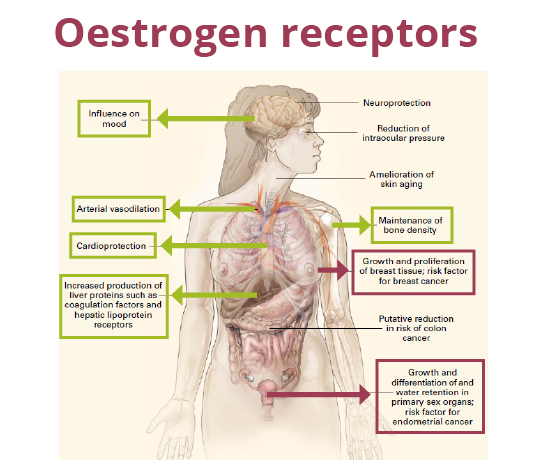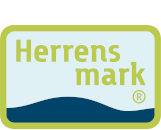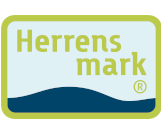Isoflavones and safety
In 2015, the European Food Safety Authority (EFSA) conducted a comprehensive risk assessment of phytoestrogens (isoflavones). In it, they confirm that there is no risk to healthy women from taking doses of up to 150mg of isoflavones daily.
Read more about the EFSA reports here:
EFSA report press release: Link
EFSA report: Link
Isoflavone content in REGOROS
Many of the red clover varieties used today have a low phytoestrogen content, a property that has been consciously bred into the plant. However, when red clover is to be used in REGOROS, it is the isoflavone content that makes it interesting. At Herrens Mark, we have therefore also worked on the development and selection of old red clover varieties for a period. We further refine them so that we are eventually left with plants we are happy with. This is an ongoing process.
REGOROS, Fermented Red Clover Extract, contains 60mg isoflavones per 100ml fermented extract.

Isoflavones a “Selective Estrogen Receptor Modulator”
Isoflavones belong to the group of substances which are also known as Selective Estrogen Receptor Modulators (SERM). This means that they mainly bind to certain cells in the body called oestrogen receptors. There are two categories of receptors, alpha and beta. The alpha version is found in high concentrations around the breast and uterine tissue, while the beta version is found around the bones, kidneys, lungs and intestines.
Isoflavones bind 100 times more strongly to the beta receptors than to the alpha receptors.

Grøn = Oestrogen receptor beta
Rød = Oestrogen receptor alpha
C.J. Grbuger, W. Tschugguel, C. Schneeberger, and J.C. Huber, “Production and actions of estrogens.”, The New England Journal of medicine, vol. 346, no. 5, pp.340-52, Jan. 2002
Application of the precautionary principle
More clinical research is needed to draw definitive conclusions about the effects of isoflavone intake in patients with oestrogen-sensitive cancers such as breast and ovarian cancer .
Herrens Mark therefore applies the precautionary principle and advises individuals who have previously had or currently have oestrogen-sensitive cancer not to take REGOROS until there is sufficient clinical evidence in the field.


